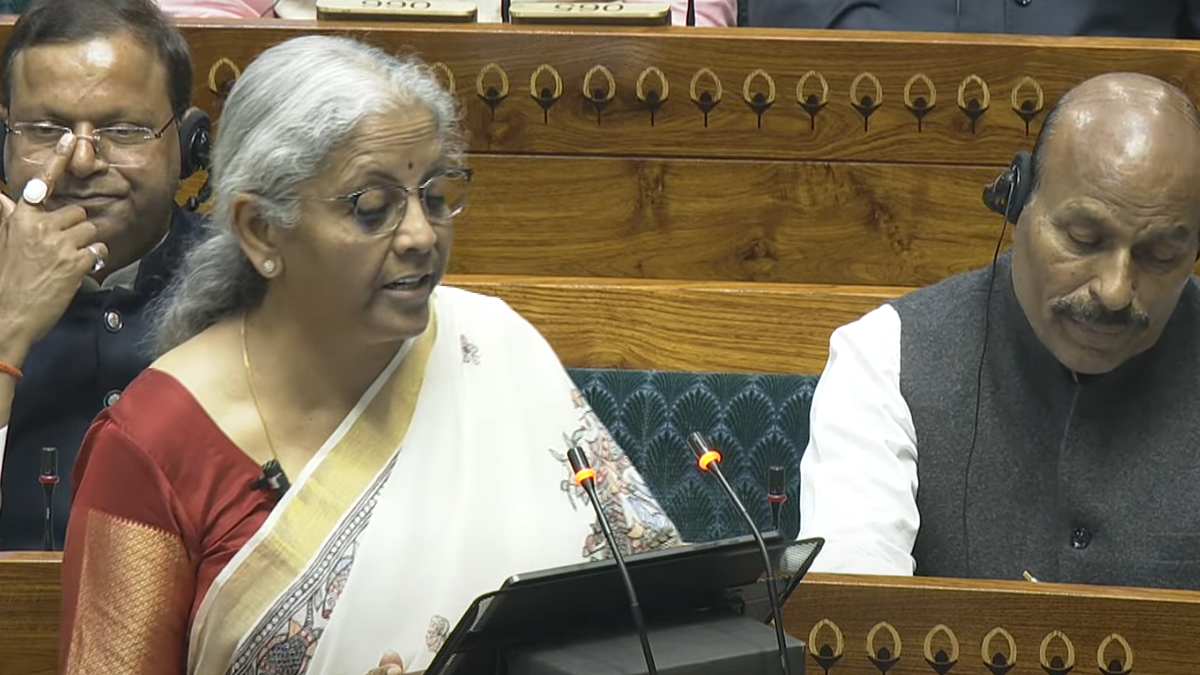Nirmala Sitharaman’s Bold Budget Strategy

Finance Minister Nirmala Sitharaman recently presented her eighth consecutive budget, marking a significant milestone in Indian fiscal policy. This budget aims to stimulate consumption through unprecedented tax cuts while simultaneously targeting a reduction in the fiscal deficit. The government’s approach reflects a keen awareness of the middle class’s concerns, which were highlighted at the beginning of her speech. As the economy faces challenges such as slowing growth and sluggish consumer spending, the budget seeks to balance immediate relief with long-term economic strategies.
Tax Cuts and Their Implications
One of the most notable aspects of this budget is the substantial tax cuts announced by the Finance Minister. These cuts are the largest in absolute terms in India’s history and are designed to boost consumer spending. The government hopes that by reducing the tax burden on individuals, it can stimulate demand and invigorate the economy. However, this approach raises questions about how the government plans to maintain fiscal discipline while implementing such significant tax giveaways.
To offset the impact of these tax cuts, the budget relies heavily on an anticipated increase in income tax revenue. The Finance Minister has projected a 14.4% growth in personal income tax revenue, despite the fact that approximately one crore individuals will no longer fall under the tax net. This assumption seems optimistic, especially given the current economic climate. The government also expects a 10.4% increase in corporate tax revenue and a 10.9% rise in Goods and Services Tax (GST) revenue. The challenge lies in whether these projections can be realized, particularly when many taxpayers will be paying less.
Investment Strategies and Foreign Direct Investment
In addition to tax cuts, the budget outlines several strategies aimed at enhancing investment in the Indian economy. One significant proposal is the increase in the Foreign Direct Investment (FDI) limit in the insurance sector from 74% to 100%. This move is expected to attract more foreign capital and expertise into the sector, which could lead to improved services and products for consumers.
Moreover, the Finance Minister has committed to revamping bilateral investment treaties to make them more favorable for investors. India’s existing treaties have faced criticism from various countries, including Australia, Saudi Arabia, and the UK. By addressing these concerns, the government aims to create a more investor-friendly environment, which could boost foreign investment in the long run.
However, the budget also reflects a cautious approach to government capital expenditure. The planned increase in capital expenditure for the upcoming fiscal year is modest, rising from Rs 15 lakh crore to Rs 15.5 lakh crore. This represents only a 3% nominal increase, which may not keep pace with inflation. Critics argue that the government has not been spending its budgeted amounts effectively, raising concerns about the actual impact of these investments on economic growth.
Balancing Fiscal Deficit and Economic Growth
The budget’s overarching goal is to reduce the fiscal deficit while promoting economic growth. The Finance Minister has set a target of 4.4% for the fiscal deficit-to-GDP ratio for the 2025-26 fiscal year, down from 4.9% in the previous year. This ambitious target is based on the assumption of increased income tax revenue and a stable level of government capital expenditure.
However, achieving this balance is fraught with challenges. The government has not been able to fully utilize its budgeted capital expenditure in previous years, and there are concerns that this trend may continue. Additionally, the projected increase in income tax revenue hinges on the assumption that taxpayers’ incomes will rise significantly, which may be difficult to achieve in the current economic environment.
The Finance Minister’s strategy also includes a focus on small and medium enterprises (SMEs). By raising the classification norms for MSMEs, the government aims to help these businesses scale up while retaining access to essential benefits. This move could foster innovation and job creation, further supporting economic growth.
Observer Voice is the one stop site for National, International news, Sports, Editor’s Choice, Art/culture contents, Quotes and much more. We also cover historical contents. Historical contents includes World History, Indian History, and what happened today. The website also covers Entertainment across the India and World.
Follow Us on Twitter, Instagram, Facebook, & LinkedIn

